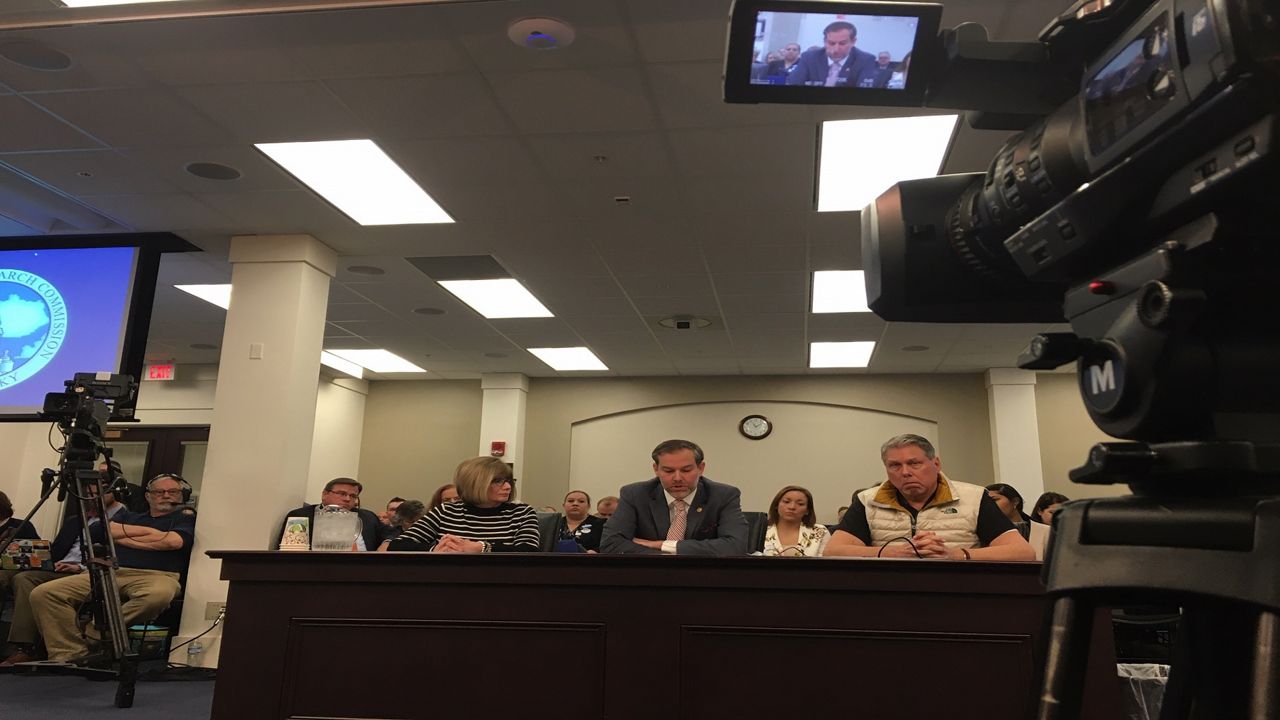FRANKFORT, Ky. — A new bill is causing a divide among the medical community.
Senate Bill 50 passed out of the Senate Health and Welfare Committee Wednesday morning. The measure sponsored by Sen. Max Wise, R-Campbellsville, would carve out Pharmacy Benefit Managers (PBMs) from the state’s Medicaid program and move it to fee-for-service.
Currently, Medicaid Managed Care Organizations (MCOs) use third-party PBMs to provide pharmacy benefits to Medicaid patients. Under the legislation, the Department for Medicaid Services would hire a third-party administrator to help it run the pharmacy benefits program.
Supporters say it will help save independent pharmacies in Kentucky while opponents say it will take money away from already struggling hospitals.
“MCOs and PBMs pocketed over $123 million in spread pricing while that number reflects nearly $335,000 of taxpayer dollars each day that MCOs and PBMs kept for themselves that number did not include fees they charged pharmacists or other form clawback schemes that PBMs place on pharmacists,” Wise said.
Under SB 50, hospitals and health centers involved in the program would still be able to bill MCOs, however, 340B hospitals and clinics say the premise of the bill is flawed. They worry removing PBMs will result in eligible hospitals and clinics paying more for prescription drugs.
Under the federal 340B drug pricing program, covered hospitals and clinics receive drugs at a reduced cost.
Under the federal drug pricing plan, eligible hospitals and clinics can sell drugs to patients at a discounted cost while billing MCOs the full cost of the drug price. In order to receive the full cost of drugs, it needs to be done through an MCO. Many of these so-called safety net providers are in rural areas of Kentucky. To be considered a safety net provider the majority of patients served must be Medicaid or Medicare.
“No other state in the nation has implemented this type of partial carve out making Kentucky’s 340B hospitals part of a national experiment which could result in dire consequences,” Nancy Gavalgni, President & CEO of Kentucky Hospital Association told lawmakers. “KHA has consulted with both in state and national experts none of which believe the partial carve out contained in SB 50 could be operationalized this is because contracted pharmacies will not know at the point of sale which prescriptions qualify for 340B and which ones don’t.”
Wise told opponents he understands their concerns but does not believe it is not able to be addressed.
“We’re not trying to eliminate 340B we are trying to protect it. I fear like there is some almost fearmongering out here that we still can’t try and find a resolution and look at other states,” he said. “I think it was said there are no other states that have carved out, there are four that have done this. How can we not look at those models and use that as ways to go forward.”
Sen. Stephen Meredith, R-Leitchfield, a vocal opponent of MCOs and PBMs, expressed concern with the measure’s impact on the 340B program but ultimately voted to pass the measure out of committee.
“What has happened to our independent pharmacists is truly reprehensible, it’s immoral, and I think to some degree probably criminal and I’ve asked our attorney general to take a look at this,” he said. “These people have been robbed from literally, and neither the MCOs nor our cabinet has done anything to protect them.”
Wise told reporters after the hearing he was going to address the concerns of KHA and other organizations opposed to the measure with the Kentucky Pharmacy Association and other supporters to see if some of their concerns could be addressed, however, opponents say they don’t believe the bill even if amended can be supported.
“We don’t think it can be operationalized to protect 340B adequately in a fee-for-service model. We’re asking for the pharmacist issue to be taken care of and the managed care contracts,” said John Inman, Kentucky Primary Care Organization. “We also have issues with reimbursement from the PBMs and we think that can be taken care of with the Medicaid agency and the Medicaid Care contracts.”
The organization maintains the overarching issues with PBMs and MCOs can be fixed through the new contracts awarded to PBMS instead of passing a law to address it. The Cabinet for Health and Family Services is currently in the Request for Proposal (RFP) process for MCOs. Pharmacists, however, say if nothing is done, independent pharmacies will begin to close.
“It’s time for us to help the pharmacists in the state that are running independent pharmacies around our state and helping our Medicaid population. These effects by PBMs are what I call it draconian,” said Don Kupper, President, Kentucky Pharmacist Association. “I think it’s draconian the way they claw back dollars and they will close pharmacies if we don’t support our pharmacies.”
The bill now moves to the full Senate floor for a vote.









